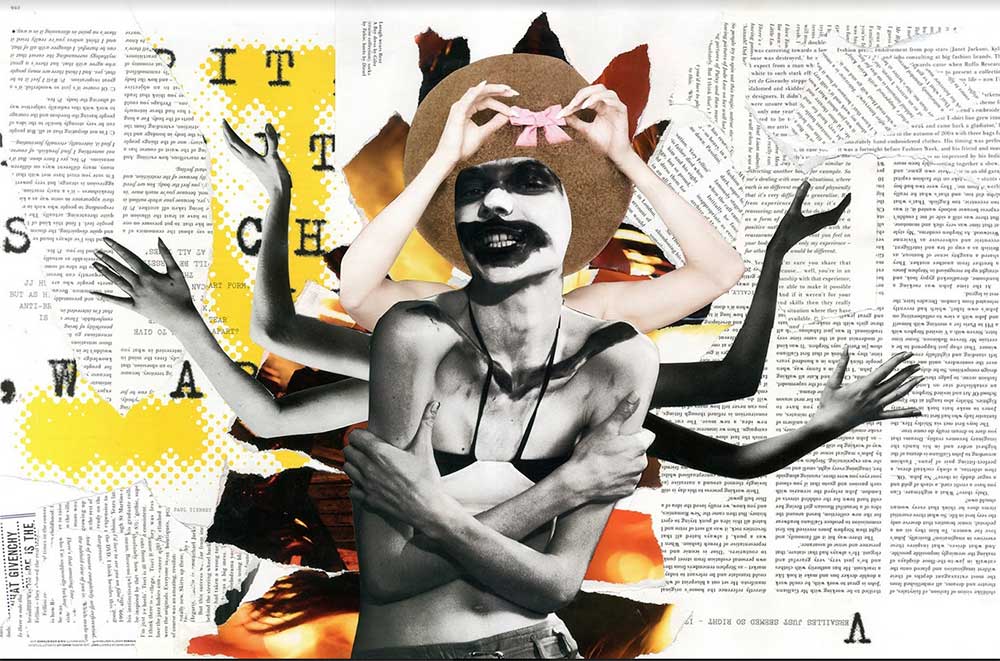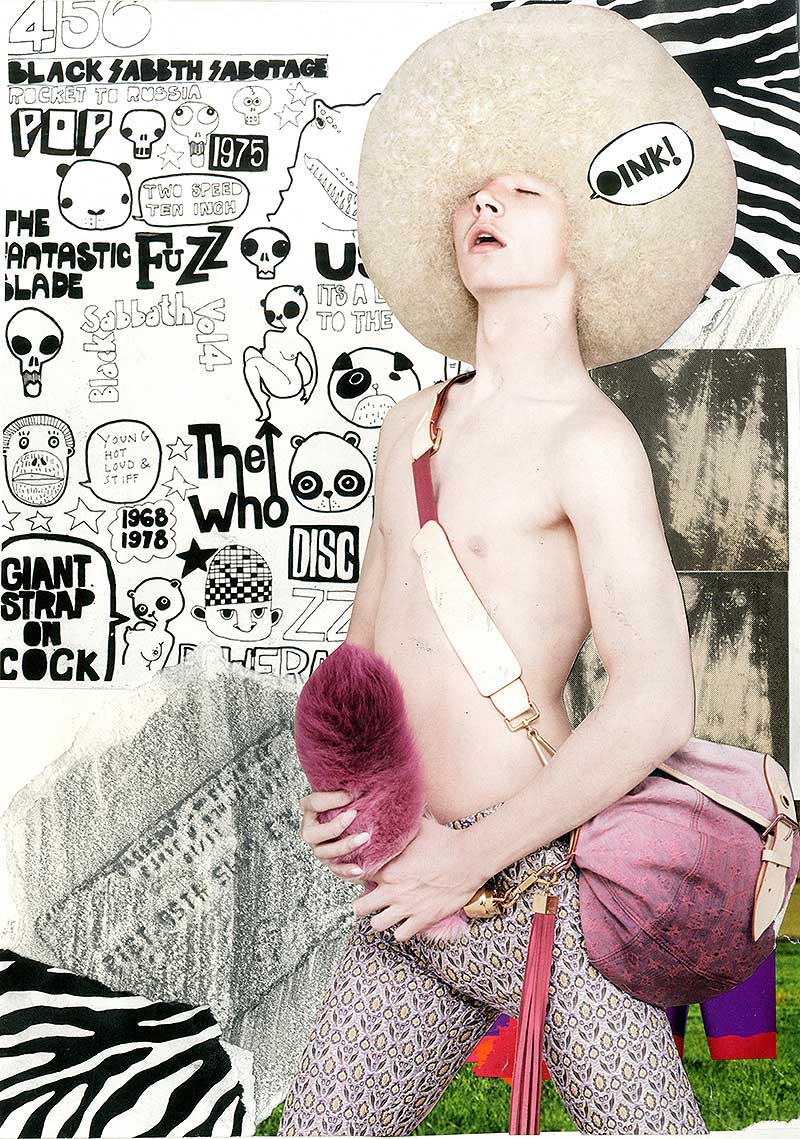
(Changing Perceptions of Sexual Deviancy)
By Leon Horton
‘Deviant: adjective & noun. Adjective: that deviates from the normal, especially with reference to sexual practices. Noun: a deviant person or thing.’
– The Oxford English Dictionary
‘Have you taken up transvestism? I’d no idea our marriage teetered on the edge of fashion.’
– What the Butler Saw by Joe Orton (playwright) 1933-1967
For my 18th birthday, in 1986, I was given what most would consider some unusual coming-of-age presents: a wooden hatstand, a crystal whisky decanter, a book on the occult… My extended family are an odd bunch at the best of times, but of all the gifts I unwrapped that day, the most bizarre – the only one I still possess – was the one my aunt gave me: A Dictionary of Mental Health by Richard B Fisher. What that says about me, I don’t know, but they say people give gifts they want themselves, so…
It is admittedly a fascinating book; a guide through the twin mind fields of psychiatry and psychology – a mostly balanced study, for its time – and one of the most useful dictionaries I’ve ever owned. Not that I’m neurotic or a hypochondriac, but over the years A Dictionary of Mental Health has saved me countless hours on psychiatrists’ couches. Thanks to that oft-thumbed paperback, I know I’m neither neurotic nor hypochondriac, I don’t have dipsomania and I can’t claim to be suffering from Tourette’s syndrome. I am, however, according to the dictates of this dictionary, a sexual deviant.
Ah, well. It’s a dirty job, but someone’s got to do it.

Published in 1980, at a time when the right-wing tabloid press casually associated homosexuals with paedophiles, when casual racism was mainstream comedy, when mental wellbeing meant “pull your bloody socks up”, A Dictionary of Mental Health helpfully lists the main areas of sexual deviancy (or paraphilia as it is also called) as:
- Bestiality (no argument)
- Exhibitionism (only when I’m drunk)
- Fetishism (I don’t know, does the smell of wild garlic count?)
- Frigidity and impotence (only when I’m drunk)
- Homosexuality (even in my sleep)
- Masturbation (huh, what?)
- Paedophilia (again, no argument)
- Sadomasochism (not even in my sleep)
- Trans-sexuality and transvestism (whatever makes you happy)
Perhaps voyeurism, necrophilia and – oh, I don’t know – frottage weren’t nominated that year, but there it is, in a golden envelope: I am a pervert of many colours. It feels unnerving that in my formative years, when I was coming to terms with and exploring my sexuality, the psychiatric world could pigeonhole me alongside paedophilia and bestiality (which A Dictionary of Mental Health laughingly describes as “said to occur frequently amongst boys in farming communities”). It’s a Freudian slap in the face – and there’s a dirty old man with a lot to answer for. Just because you fancied your mum, Sigmund, doesn’t mean we all do. Besides, I grew up in a farming community and I can assure you…
To define sexual deviancy it is, of course, necessary to provide a definition of sexual normalcy, and again A Dictionary… comes through with a description so ridiculous it is neither accurate nor helpful: “sexual activity which sub-serves reproduction”. This accounts for the inclusion of masturbation on the list, which surely makes perverts of us all, but excludes the possibility of, say, a transvestite satisfactorily impregnating their wife or partner. And since when was failing to get it up a form of deviancy? We all have our off days.
To classify sexual deviancy as any form of sexual activity not intended to produce a baby is to miss a fundamental point: sex is – or at least should be – something to be enjoyed, and not merely a biological duty. Moreover, to define sexual deviancy in purely clinical terms fails to take account of both perceived cultural differences and changes in public opinion. Public perceptions have often resulted in changes in attitude long before psychiatry and/or psychology and the law have woken up in bed together with no idea of how they got there. Besides which, “sexual deviancy” is a pejorative term often used interchangeably with “perversion” – and to deviate from something is not to pervert it, anymore than to travel into town on the bus is to abuse the train.
In fairness to Mr Fisher and his dictionary, he does point out that many textbooks on psychiatry rightly regard any such association as unjustified, and goes on to say “to describe any [italics mine] sexual practices as perverse… is a mischievous holdover from the intensely moralistic psychology enshrined by Freud and his followers.” Perhaps I should be a little more forgiving in my treatment of A Dictionary of Mental Health. After all, times have indeed changed and 1980 was a long time ago – wasn’t it?
In 2012, the psychiatric world finally caught up with the assumed zeitgeist when a study by clinical psychologist James Cantor, “Is Homosexuality a Paraphilia? The Evidence For and Against”, conveniently discovered that while homosexuality shared certain features with other paraphilias, they appeared to differ on “sex ratio, fraternal birth order, handedness, IQ and cognitive profile, and neuro-anatomy.” Or, to put it country simple, I’m more likely to:
- Get more sex (excellent)
- Be the first born (I am)
- Be left-handed (I am)
- Be more intelligent (I’ve got a masters degree, fuck you)
- Have a different brain structure to your run-of the mill deviant (well, I did take a lot of acid in the 90s)
As a result of his findings, Cantor suggested treating homosexuality as distinct from other sexual deviancy categories – which I guess is a roundabout way of saying “sorry, we fucked up again” – but regarded his own conclusions as “quite tentative” given the current limited understanding of paraphilias.
Ah, well. Psychiatry is a dirty job, but someone’s got to do it.
These days sexual deviancy is classified by the American Psychiatric Association as “the experience of sexual arousal to atypical objects, situations or individuals.” Hmm. Well, maybe. This broader definition conveniently sidesteps the lack of consensus as to the difference between unusual sexual desires and what we might call deviancy, but again fails to address what that difference is. We’ve come a long way, true, but it seems we’re only halfway there.
So there it is: almost fifty years after homosexuality was decriminalised in the UK, I am, in one psychiatric category at least, off the deviancy list. I can only live in hope for some sort of apology to follow. As for the rest of you freaks, you’ll just have to wait your turn.

Further Reading
(1) Fisher, Richard B. (1980). ‘A Dictionary of Mental Health’, Granada Publishing Limited. ISBN: 0-586-08339-1
(2) Cantor, J.M. (2012). ‘Is Homosexuality a Paraphilia? The Evidence for and Against’, Archives of Sexual Behavior 41 (1): pages 237–247.
Words by Leon Horton
Artwork by Stephen James
About the Author
Leon Horton is a journalist and scriptwriter. After gaining his masters degree from the University of Salford, he cut his teeth on local magazines, enjoyed a caretaker stint as the editor of Old Trafford News then returned to freelance writing. His work is published in International Times, Empty Mirror, Erotic Review, Nexus New Times and the Animals’ Voice.
Leon lives in Manchester, England, and can be contacted at [email protected]
Stephen James is an artist who uses words, collage, sound and photography for the “gathering, distortion and dissemination of information.” He is currently studying Fine Art and Art History at Goldsmiths, University of London. Stephen can be contacted at [email protected]
Art Work by Stephen James
